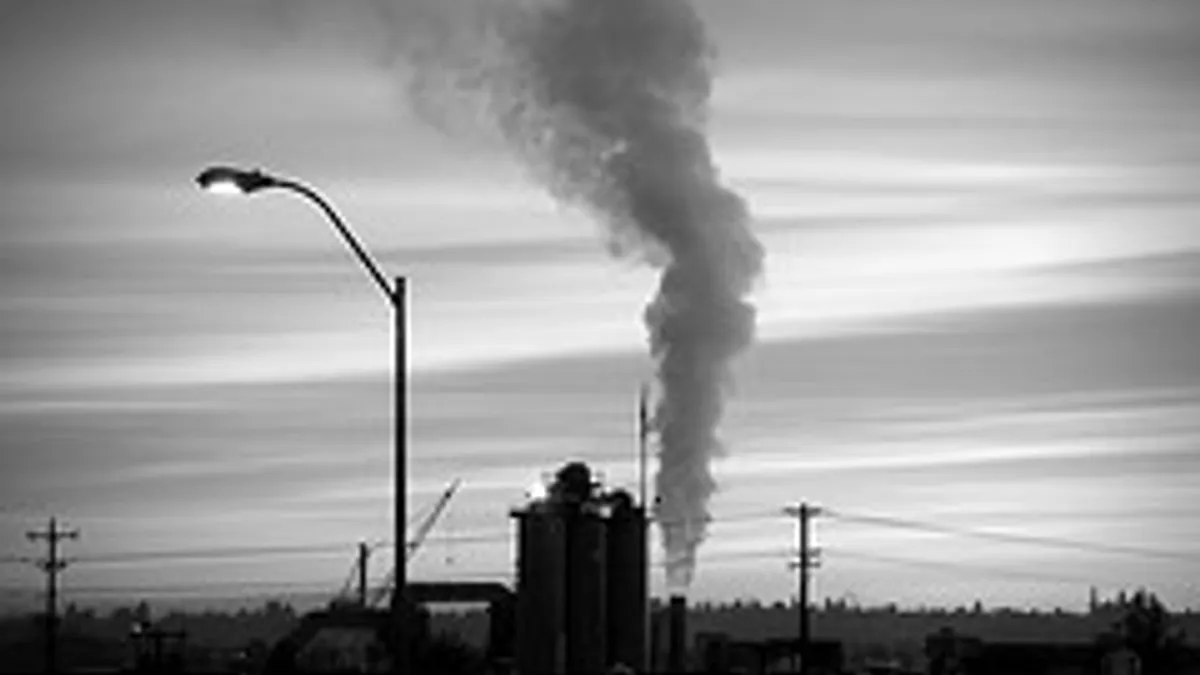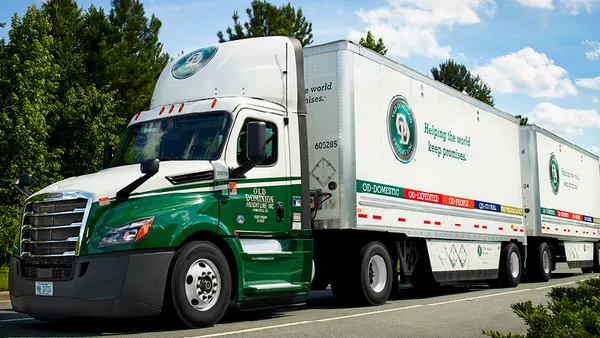Dive Brief:
- CA governor Jerry Brown signed a new law that many see as the nation’s strictest plan to reduce “super pollutants” emissions of black carbon, methane and pollutants that trap heat, the San Francisco Chronicle reports.
- Senate Bill 1838 calls for methane, tropospheric ozone, hydrofluorocarbons and black carbon emission reductions by 2018, with certain deadlines extending until 2030. Hydrofluorocarbons and methane, for example, will be cut by 40% from the 2013 levels but by 2030.
- The emission reduction policies affect all CA industry, although the freight shipping and farming industries may suffer more than others due to their inability to shift locations and concerns over competition and pricing.
Dive Insight:
The West Coast state may be hailed for its precedent setting clean energy policies, but certain industries are struggling to or neglecting to comply with the new laws.
Earlier this year, the Port of Los Angeles failed to meet its pollution reduction requirements, prompting the government to install a special task force within the administration. However businesses like ports often cannot independently reduce their greenhouse gas emissions since they rely on a variety of at times foreign actors (shipping lines) as their clientele. Such is the case in general with the supply chain.
As a result, the task force recommended providing incentive programs to encourage business partners to switch to cleaner equipment in addition to an enforcement mechanism in case companies do not comply after a reasonable period of time. Just as clients can fear losing suppliers over a change in policy, suppliers often fear losing business over lack of compliance with client policies, particularly when incentives are involved.
Now, shippers will have even tougher guidelines to comply with — and they will be responsible for ensuring their business partners help the ports over time.













